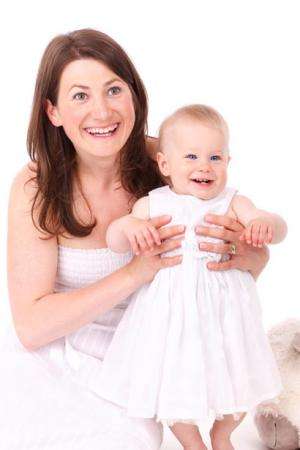This article has been reviewed according to Science X's editorial process and policies. Editors have highlighted the following attributes while ensuring the content's credibility:
fact-checked
trusted source
written by researcher(s)
proofread
Researcher: Mothers are more likely to work worse jobs—while fathers thrive in careers

Having a child is bad for a woman's earnings. This is not only in the immediate period after the birth, but across her lifetime—as shown in research by recent economics Nobel prize-winner Claudia Goldin.
On the other hand, men who become fathers are perceived as self-reliant and decisive. And they are often rewarded at work with opportunities and pay.
Campaigns by groups like Pregnant Then Screwed make explicit that, in the UK, this "motherhood penalty" extends to pregnancy discrimination, the extortionate costs of childcare and ineffective flexible working policies. Yet we still know little about how it extends to job quality.
Together with colleagues, I have carried out research to explore this "motherhood penalty" further. Using data from 15,877 employees from the UK Household Longitudinal Survey, we investigated the kinds of jobs women with children do, and how this compares with fathers and women without children.
Poor-quality jobs
We looked in particular at job quality, covering factors like training opportunities, promotion prospects, control over day to day tasks, benefits, working hours and work-life balance. Poor-quality jobs, such as those characterized by high demands, low control and limited flexibility, are known to be damaging for well-being. They are particularly concerning when it comes to working parents, due to the likely spillover effects on children.
We found a clearcut motherhood penalty. Mothers are under-represented in high-quality jobs—those with attributes including good work-life balance, control over working hours and control over job tasks.
Mothers of school-age children, in particular, are more likely to work in poor-quality jobs. They are less likely to have high-quality jobs, compared both to their male counterparts and to women without children.
What's more, our models controlled for the sector and occupation people worked in. This suggests that women with children suffer a penalty even when compared to other people in similar jobs.
Our findings also show that the trade-offs made by mothers and fathers in their employment situations—on things like pay, career opportunities and flexibility—are rather different.
We found that mothers were also much more likely to have jobs that scored poorly on access to training and prospects, yet had high levels of control over the nature and timing of their work. These jobs were often part-time. This is especially the case among mothers of children attending primary school. Almost a third hold jobs like this.
Trading promotion for flexibility?
It might be possible to look at these results and think that mothers have "chosen" to sacrifice rewards and prospects in favor of working around their children's needs—while dads choose to prioritize breadwinning even if it means less time with their kids. Indeed, the jobs most associated with fatherhood are characterized by long working hours combined with good opportunities for progression.
But these trade-offs are not inevitable. They are also not desired by all parents.
As we found in earlier research, mothers can feel their contracted part-time hours block them from desired career progression. Part-time hours may not even help them find balance if they face a workload better suited to full-time hours, potentially leading to overwork for little gain.
What's more, our research shows that mothers may not be trading career progression for flexibility. The poor-quality jobs primarily filled by mothers offer very little in the way of either flexibility or career progression. This means many mothers actually have worse access to flexibility than women without children.
The motherhood penalty in job quality, in all its guises, combined with pressures such as the high cost of childcare and partners' long hours, may well contribute to stress and burnout among working mothers. Employers have an important role to play in tackling this by promoting gender equality in the holistic experience of work, in addition to addressing pay equality.
But while supporting the well-being of working parents is important, more concrete actions like openly making key promotions available to part-timers and genuine commitments to effective flexible working are also needed.
Strategies like these would not only signify employers' commitment to freeing parents from outdated roles, but also help them retain a vast talent pool. Both employers and governments need to wake up to the stark disadvantages faced by working mothers in accessing meaningful and fair employment, and start taking the motherhood penalty seriously.
Provided by The Conversation
This article is republished from The Conversation under a Creative Commons license. Read the original article.![]()





















